Folio, Folio, wherefore art thou Folio? Shakespeare set to be auctioned by Sotheby's
Four Folios will be auctioned in London on May 23, with an estimate of £3.5–£4.5 million for 'the most significant publication in the history of English literature'.
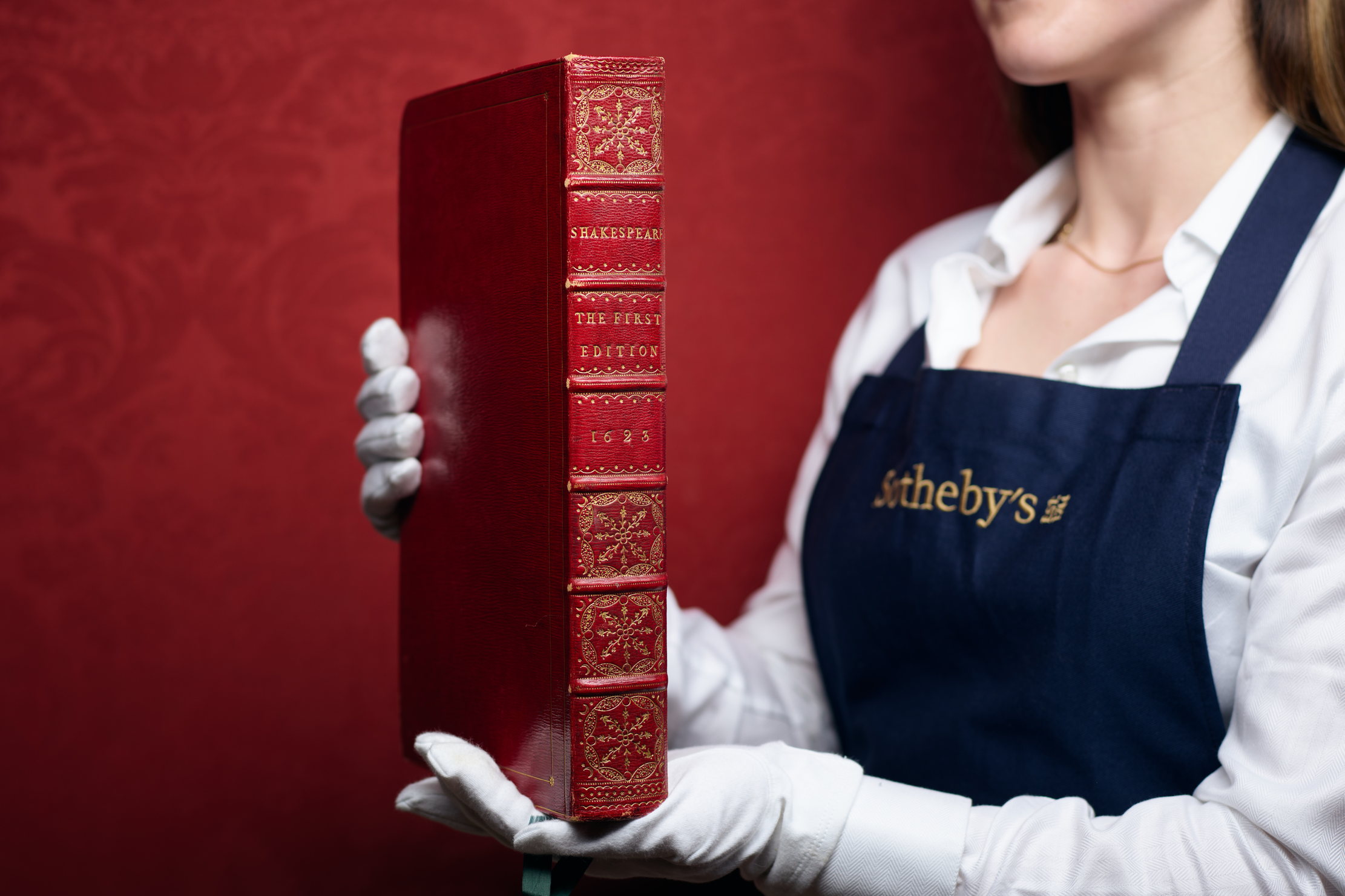

Imagine a world without swagger. An arrogant man would walk confidently and without shame and he would simply… walk. Or without blushing. When your office crush complimented you on a particularly chic outfit, what would you do then? Now, picture a world without courtship. Yes. It is almost too frightful to imagine.
Luckily, you don’t have to live like this — you can swagger around courting whoever you fancy while blushing to your heart's content. But only because the First Folio was published. Without this, arguably the most significant publication in the history of the literary canon, up to half of Shakespeare’s plays would have been lost, and with it many of the remarkable words he is credited with inventing, including: swagger, blushing and courtship. They also include: outbreak, addiction, gossip, torture and puking, so arguably we could have had a much more pleasant world without it too.
Nevertheless, the First Folio, published in 1623, less than a decade after its author's death, is invaluable in what it has given both English language and literature. And now, all four Shakespeare Folios will be up for auction courtesy of Sotheby's in London on May 23, with an estimate of £3.5-£4.5 million — made the year the set was brought together.
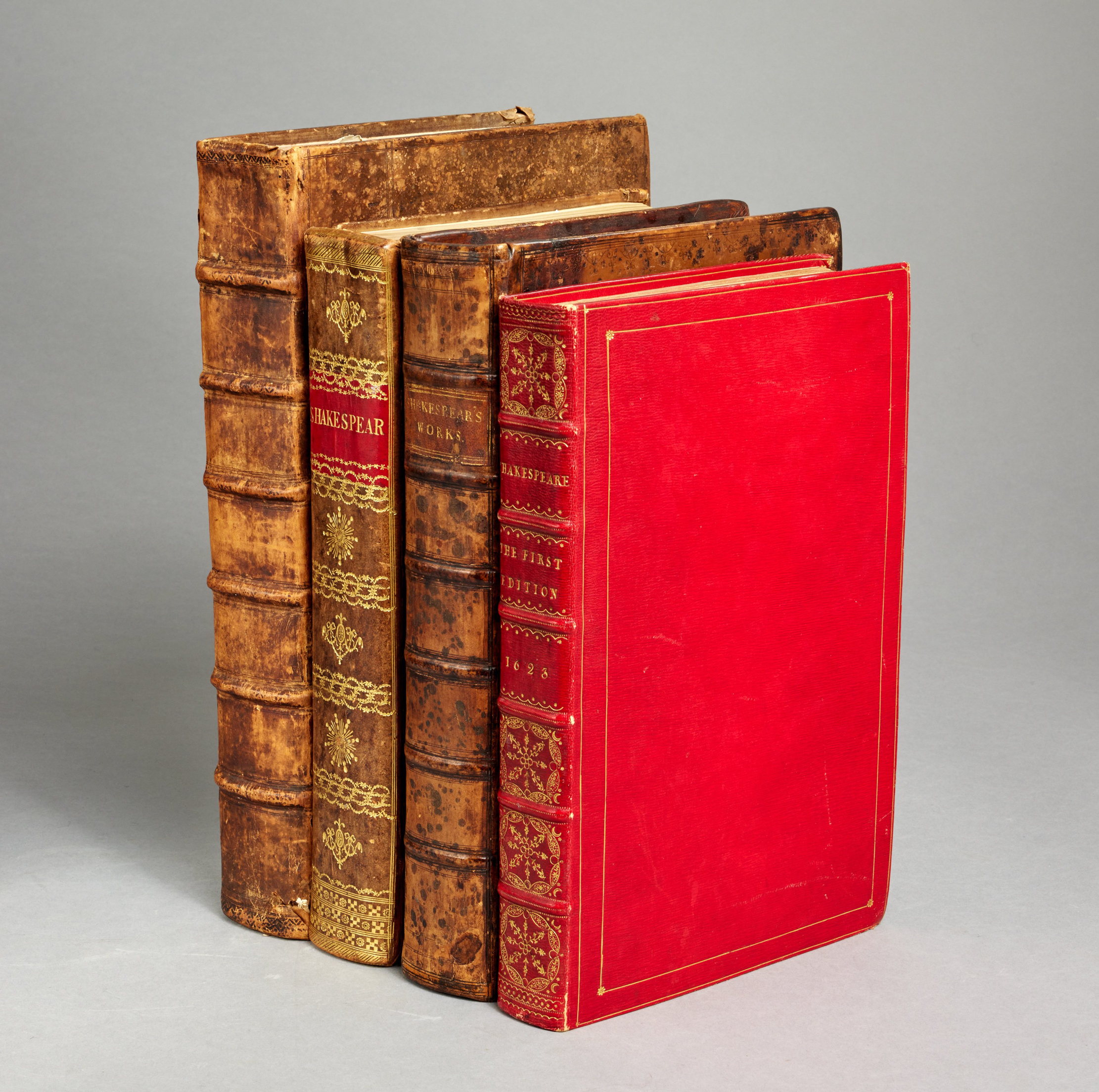
The four Folios.
Before that, the First, Third and Fourth Folios had been together, having been purchased separately by Sir George Augustus William Shuckburgh-Evelyn. A man who, you’d be forgiven for thinking, couldn’t possibly have had a longer and more complex job description than his name. But you'd be wrong. He was a bibliophilic polymath who pioneered the barometric measurements of altitude and invented a new way of calculating the standard length of a yard. In short he loved two things – books and measuring things — and he loved them a lot.
In fact, I bet, if he were alive today, he would be chomping at the bit at the concept of owning a set of all four of the Folios. The last time this was offered was at Sotheby's in New York in 1989 and — after this year's auction — I imagine it is unlikely that the lucky winner will wish to part with their collection for a while to come. Needless to say, it’s an opportunity that does not come round very often.
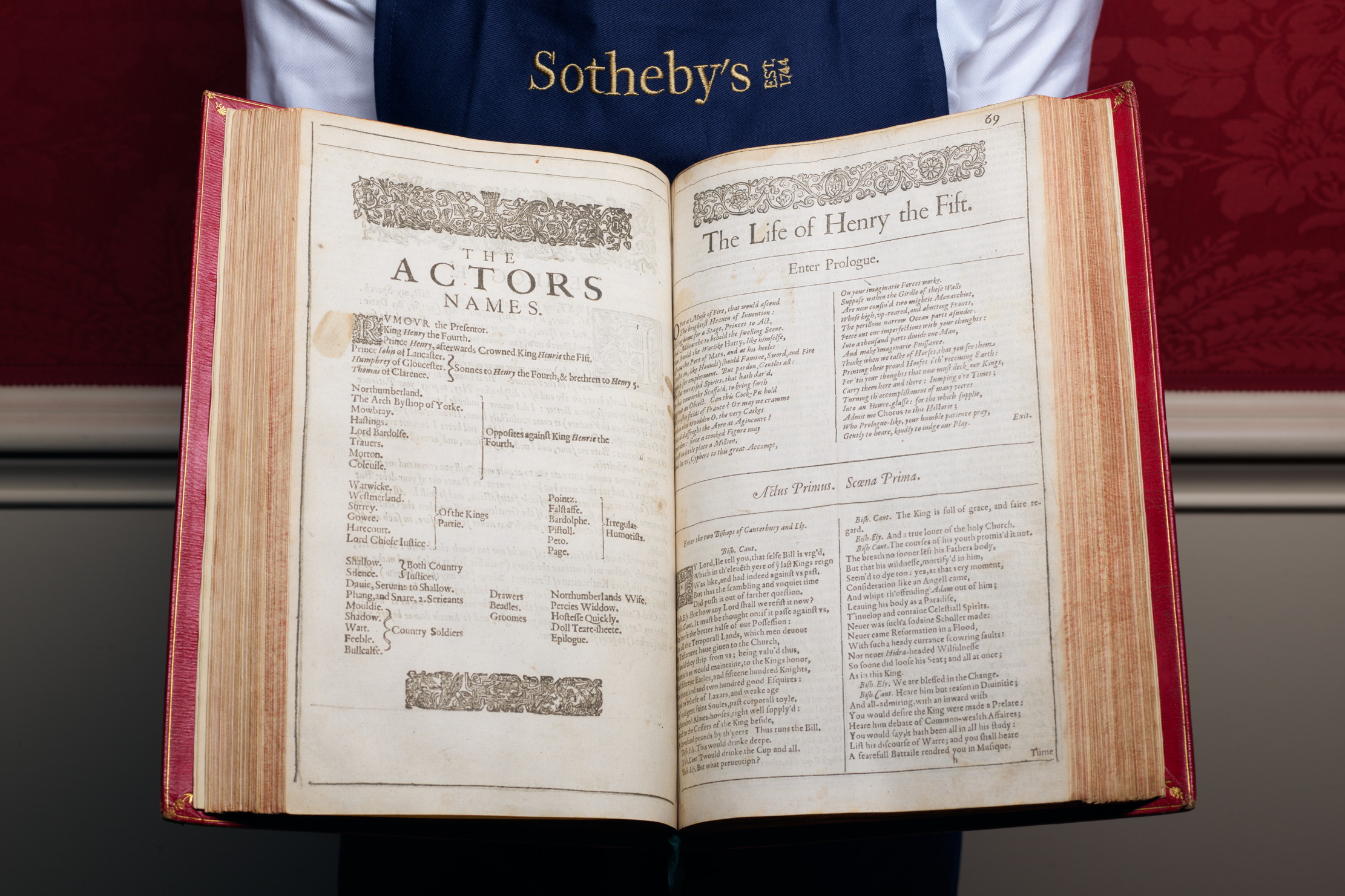
The combined works were published between 1623-1685. Around 750 copies of the First Folio were published, and these were exhausted within 10 years, leading to the publication of — you’ve guessed it — the Second Folio in 1632. The two decades that came next saw most of the theatres shut for many years due to a series of unfortunate events that included the civil war, the plague and the opinions of Puritans.
However, this did not dent the mass appeal of Shakespeare’s works. Thus, the Third Folio appeared in 1664 with the addition of seven further plays (although one of them was Pericles, which, personally, I could have lived without) and a fourth followed in 1685.
Sign up for the Country Life Newsletter
Exquisite houses, the beauty of Nature, and how to get the most from your life, straight to your inbox.
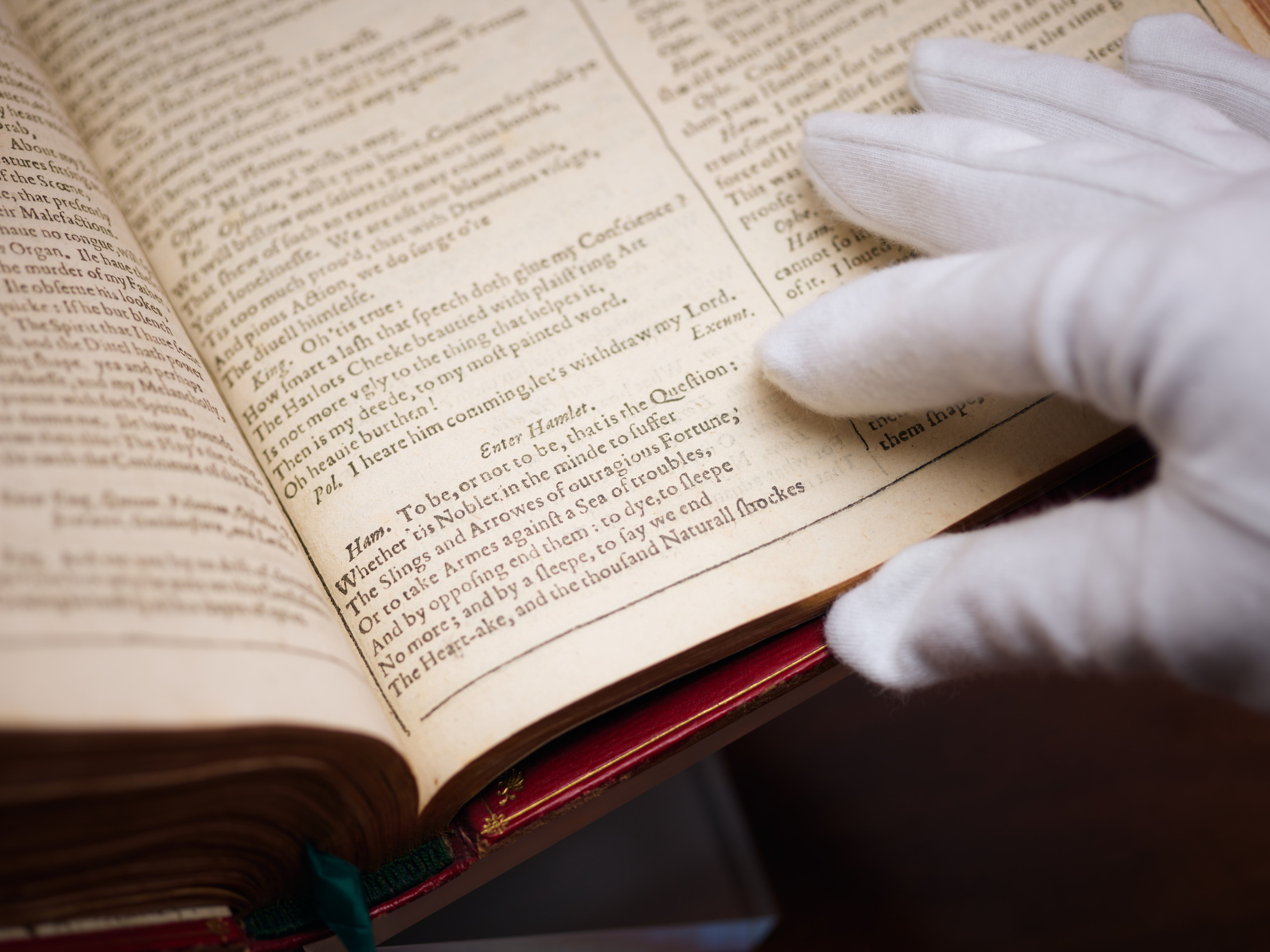
A close-up of a page of Hamlet. You may have heard of it.
The Folios, in their physical manifestation, are the bulky proof that Shakespeare was not a poet writing for an aristocratic elite, but a commercial playwright whose work was published in bulk and enjoyed by the masses.
'Your bum is the greatest thing about you'
William Shakespeare, Measure for Measure
The First Folio contains 36 plays, 18 of them printed for the very first time. Without it, we may not have many of his beloved plays today, including: Antony and Cleopatra, Julius Caesar, Macbeth, The Taming of the Shrew, The Tempest, As You Like It, Measure for Measure and Twelfth Night. Iconic lines could have been lost forever. ‘Et tu, Brute?’ (Julius Caesar) would remain a line un-uttered. ‘Out damn spot’ (Macbeth) would be lost to the past. ‘Your bum is the greatest thing about you’ (Measure for Measure) also forgotten. And wouldn’t that have been a shame.
The Sotheby’s auction will take place on 23 May. Visit their website for more information.
Lotte is Country Life's Digital Writer. Before joining in 2025, she was checking commas and writing news headlines for The Times and The Sunday Times as a sub-editor. She got her start in journalism at The Fence where she was best known for her Paul Mescal coverage. She read English Literature at The University of Cambridge and has an MA in Magazine Journalism from City St George’s, University of London. She reluctantly lives in noisy south London, a far cry from her wholesome Kentish upbringing.
-
 Chillingham Castle: The place 'of imagination and beauty' where 'every room is filled with eye-catching objects'
Chillingham Castle: The place 'of imagination and beauty' where 'every room is filled with eye-catching objects'John Goodall celebrates the salvation of Chillingham Castle, Northumberland. Photography by Paul Highnam for Country Life.
-
 Laverstoke Park, the iconic home of Formula One World Champion Jody Scheckter, roars onto the market
Laverstoke Park, the iconic home of Formula One World Champion Jody Scheckter, roars onto the marketThe benchmark for the sale of the year has been set.
-
 London Craft Week: Rolls-Royce demonstrates the true beauty of real artisanship
London Craft Week: Rolls-Royce demonstrates the true beauty of real artisanshipA triptych of British nature scenes show that the difference between manufacturing and art is not as wide as we might think.
-
 A woolly mammoth skeleton is among the curiosities for sale to save fire-ravaged Parnham Park
A woolly mammoth skeleton is among the curiosities for sale to save fire-ravaged Parnham ParkThe auction of the owner James Perkins' collection, hosted by Dreweatts, tomorrow (May 13), will be used to fund renovation works at Parnham Park in Dorset.
-
 The Swatch ScubAqua collection is ‘a Woolworths pick-and-mix counter for your wrist’
The Swatch ScubAqua collection is ‘a Woolworths pick-and-mix counter for your wrist’The 1990s wasn't horology’s most glittering decade, but with the decade firmly back in style, watchmakers are keen to give it all another go.
-
 BMW X7 M60i: A car that can somehow do absolutely everything
BMW X7 M60i: A car that can somehow do absolutely everythingBMW's large luxury SUV pushes the very boundaries of the possible.
-
 Kermit the frog, a silver-horned goat and Charles III’s 69ft-long coronation record star in a groundbreaking exhibition
Kermit the frog, a silver-horned goat and Charles III’s 69ft-long coronation record star in a groundbreaking exhibition‘Happy & Glorious’, at the The National Archives in Kew, captures the spirit of the King’s coronation with works by eight contemporary artists alongside the official roll of the day — and that of Edward II’s crowning in 1308.
-
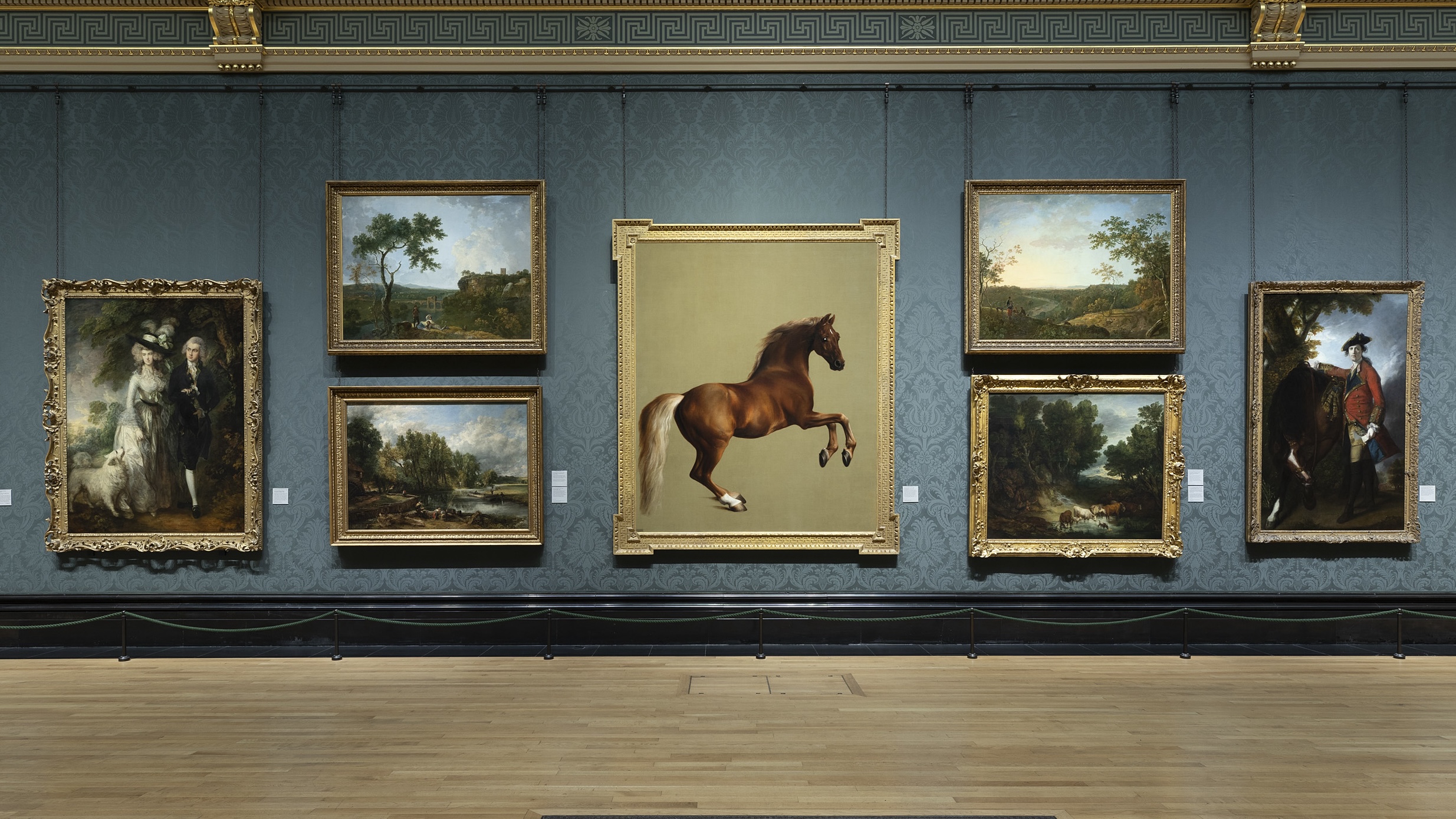 The National Gallery rehang: 'It is a remarkable feat to hang more with the feeling of less', but the male gaze is still dominant
The National Gallery rehang: 'It is a remarkable feat to hang more with the feeling of less', but the male gaze is still dominantAlmost everything on display at the National Gallery has been moved — and paintings never previously seen brought out — in one of the the biggest curatorial changes in the Gallery's history.
-
 The last ‘private’ photograph of F1 driver Ayrton Senna taken before his death goes on display in London
The last ‘private’ photograph of F1 driver Ayrton Senna taken before his death goes on display in LondonIn a new exhibition of Jon Nicholson’s work at Connolly, Mayfair, photographs of Earth’s most glamorous — and sometimes tragic — motorsport series are displayed alongside ones of ‘quintessentially British’ banger racing.
-
 Lotus Emira Turbo SE: If you want to experience the last 'real' Lotus, now is the time
Lotus Emira Turbo SE: If you want to experience the last 'real' Lotus, now is the timeAs Lotus goes fully electric, we take out its last petrol offering, the Emira, to see if the spirit of Chapman is still alive.